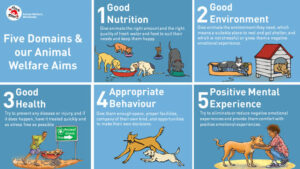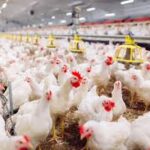ANIMAL WELFARE
Animal welfare refers to the physical and mental well-being of animals. When we talk about animal welfare in the context of livestock farming, we’re specifically looking at how animals are treated on farms. There are several factors that can affect animal welfare on farms, including housing conditions, food quality, and animal handling.
Housing conditions can impact an animal’s ability to express natural behaviors, like lying down or socializing. Food quality can affect an animal’s health and well-being and animal handling can cause stress and pain if not done properly. Animal welfare is about the psychological well-being of animals. They (animals) can have both positive and negative feelings and experiences. Most animals are intelligent and some can have a large emotional capacity. An animal’s needs are what is considered essential for good health and welfare.
Starting with the housing conditions, One of the most important factors is space. Cattle, pigs, and chickens are often kept in cramped conditions that don’t allow them to move around freely. This can lead to a number of health problems, like lameness and bone deformities. Another important factor is bedding. Bedding provides animals with a comfortable place to lie down and can help to prevent diseases. Cleanliness is also important, as dirty conditions can lead to infections and other health problems.

Also, we cannot but talk about the temperature and ventilation. Animals can suffer if they’re kept in temperatures that are too hot or too cold. They can also suffer if the air in their housing is too humid or too dry. That’s why it’s important to have proper ventilation and temperature control. Other important factors include lighting and noise. Exposure to bright lights and loud noises can be stressful for animals. Finally, socialization is an important consideration. Social animals like cattle and pigs can become stressed and aggressive if they don’t have the opportunity to socialize with others of their kind.
Furthermore, food quality is critical for animal welfare. Animals need to have access to a diet that’s nutritionally complete and appropriate for their species. For example, ruminant animals like cattle need a diet that’s high in fiber and low in starch. And pigs need a diet that’s high in protein and fat. The food also needs to be fresh and free of contaminants like mold or bacteria. Finally, the food should be available in the right amount and at the right time. This is called feed management, and it’s important for both animal health and productivity.
You can widen your knowledge about agriculture on: COCOA: A GREAT EXAMPLE OF AGRICULTURAL PRODUCE
Also on: The Power of Good Fruits: Boosting Your Immune System











One thought on “Animal welfare”